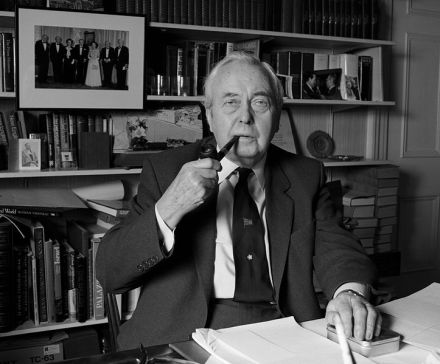When Ed Miliband walks into Downing Street next May – and if you cut through all the flim flam that’s what the polls tell us is the most likely outcome of the General Election– he will have achieved something that has only been done once before in the post war period. He will have returned his party to government at the first time of asking after an election defeat — just as Harold Wilson did February 1974.

There are instructive parallels between the politics of the 1970s and now. If he fails to get an overall majority Miliband may well face the same choice as Wilson – whether to try to form a coalition or whether to rule as a minority government.
Ben Pimlott’s biography Harold Wilson, especially chapter 27 on how Wilson ran his minority government should be on Miliband’s reading list for the next recess.
What he won’t need to do is to seek advice from Harold Wilson’s former press secretary, Joe Haines. Not because comrade Haines took to the columns of the Daily Telegraph (£) to call for the ousting of the Labour leader but because of his failure of imagination and memory.
I was a very junior member of Labour’s media operation in the 1970s when Haines was top dog. I admired him from afar. He’s a brilliant journalist and was a fierce defender of his boss — agreeably tribalist and grumpy.
His grumpiness has got the better of him. With his experience he should be more charitable giving Miliband credit for preventing the destructive infighting that followed Labour defeats in the past. Wilson’s oft-quoted response to rumours of plots against him: “I know what’s going on. I’m going on” underlines the fact he led a divided party. Within a year that comment Labour were losing the 1970 election.
Haines contends that Labour as the Opposition ought to be winning the Rochester and Strood by election. You’d be forgiven for assuming that’s what was happening when Wilson was leader of the Opposition the 70s. In fact, it was the insurgent Liberals, with populist tactics similar to UKIP’s, who were sweeping all before them, gaining four Tory seats and one Labour. Oh yes, and then there was Scotland. Labour’s defeat by Margot Macdonald at Glasgow Govan was the start of an SNP surge which was to give 11 MPs by October 1974. The seeds of today’s fragmentation were sown.
Haines echoes Tory complaints about “unfairly drawn constituency boundaries”, conveniently forgetting that Heath’s Tories got more votes but fewer seats than Wilson’s Labour in February 1974. It was a bit of belated just for what happened in 1951 when Attlee was ousted despite beating Churchill in the popular vote.
Next May the vagaries of the first-past-the-post system will play to Labour’s advantage against a backdrop a fragmented politics where six parties are contenders. The polls point to Labour at least being the biggest party next May. The polling website UK Polling Report suggests that even a tiny 33%-32% lead over the Tories Labour could get very close to an overall majority.
The positive news from the national surveys is underpinned by Lord Ashcroft’s marginal polling. Take Northampton North, where Miliband was campaigning last week. It’s number 40 on Labour’s hit list of key Tory marginals and according to Ashcroft Labour’s Sally Keeble has a 4% lead and is on course to regain the seat she lost in 2010. If she does that Ed Miliband is heading for Downing Street.
Lord Ashcroft summed up his findings from scores of marginal polls: “The Conservatives can afford to lose no more than 21 seats to Labour if they are to remain the largest party. My battleground polling has to date found them behind in 38 – albeit sometimes by very slim margins – and we have not yet reached the point at which the Tory losses end.”
One final point about leadership skills. Like Wilson Tony Blair was a brilliant communicator and campaigner. That didn’t stop him shedding four million Labour voters between 1997 and 2005. The 66-seat majority in 2005 was achieved on just 35% of the popular vote. By 2010 Labour’s share was below 30%. That was Miliband’s miserable inheritance from his two former bosses, Tony Blair and Gordon Brown.
Miliband has kept Labour in the game. He may “win ugly” in football parlance but we almost certainly will win. Miliband and the party then get the chance to convince people – not with mere words – but with policies that make a difference to people’s lives that Labour shares their values and aspirations. That was how Wilson did it in 1974.




More from LabourList
‘The High Court judgment brings more uncertainty for the trans community’
‘There are good and bad businesses. Labour needs to be able to explain the difference’
‘This ruling should now remove any remaining barrier to approval of EHRC code’